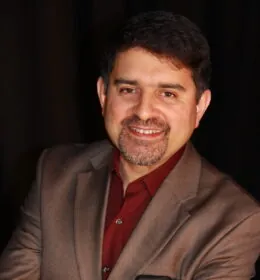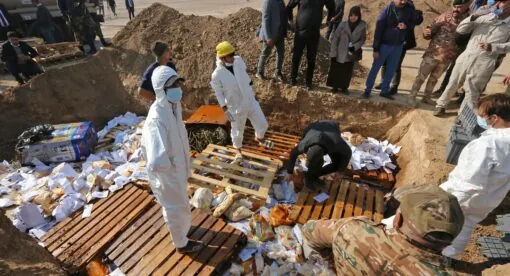In last week’s article, I argued how tradecraft (as opposed to ideology) is the principal element that goes into the making of violent extremism and is the key to counterterrorism as well. Tradecraft is the critical distinction between latent forms of extremism and its violent incarnation. The Saudi military officer who shot dead three U.S. servicemen at an airbase in Florida where he was training on Dec. 6, however, brings us back to the issue of the thought process that leads some individuals in very mainstream occupations to committing acts of terrorism.
An Individual’s Mindset
The Pentagon on Dec. 10 indefinitely halted all activities outside the classroom (flight instruction, firing range training and all other operations) for some 900 Saudi military officers currently in the United States. The move comes after Royal Saudi Air Force 2nd Lt. Mohammed Saeed al-Shamrani opened fire in a classroom at Naval Air Station (NAS) Pensacola, killing three U.S. Sailors and wounding eight others. A sheriff’s deputy, one of the first responders to the crime scene, killed al-Shamrani. The FBI continues to investigate the motive behind al-Shamrani’s decision to kill, using a handgun he reportedly had purchased lawfully.
According to reports, individuals who knew al-Shamrani noticed that he had returned from his most recent trip home more “religious,” “strange,” and angry”. More recent reports, however, indicate that the man had been radicalizing for years. According to a detailed CNN report, the man was exhibiting “Dr. Jekyll and Mr. Hyde” type behavior, and it went undetected. This case has major implications for how the United States conducts counterterrorism, homeland security & military cooperation with allied nations.
Last April, al-Shamrani, who had been training in the U.S. since early 2017, filed an official complaint about an instructor who had addressed him as “porn stache” in the presence of some 10 other aviation students — a remark that deeply embarrassed and angered him. It is very common for people to experience resentment at being the target of bullying or even comments made in jest by a person in authority. Some people seek redress through the available channels, but many simply ignore the incidents. In any case, such experiences of humiliation have to be understood in the context of the person’s broader mindset.
The a priori outlook of a person plays a critical role in how the individual processes such incidents. Al-Shamrani was a commissioned officer in the Saudi air force and one of nearly a thousand military officers from the kingdom currently in the United States for Department of Defense-sponsored training programs related to security cooperation. Clearly, he went through a selection process in his country and then was vetted by both the Pentagon and the Department of State before receiving a temporary visa. Foreign military officers who are sent to the United States for training usually have bright careers ahead of them that likely include assuming senior positions in their home countries in the future.
Clearly, al-Shamrani was well aware of this potential trajectory and the likelihood of a prosperous life, which is why he signed up for a career in his country’s armed forces. For him to throw it all away by killing American naval personnel is extremely atypical for a person of his background. What made him take such a drastic step? The question that we ask after every terrorist incident is: How was the perpetrator radicalized?
The Long Game of Reform in Saudi Arabia
In most cases, terrorists’ backgrounds easily explain the choices they made. Al-Shamrani, however, does not fit the mold. Therefore, it is important to look at the broader environment he was exposed to. We have to examine what is happening within Saudi Arabia at a time when Riyadh, under the leadership of Crown Prince Mohammed bin Salman, is pushing a very aggressive social reform agenda. Thus far, there is no indication that the crown prince faces any serious resistance from within the kingdom that has been the global hub of the ultraconservative ideology of Salafism since as far back as the mid-18th century. On the contrary, it would appear that many Saudis, especially the youth, are welcoming Prince Mohammed’s efforts toward sweeping normative societal changes.
The young crown prince’s apparent success in his undertaking to drain the proverbial swamp of extremism within the kingdom has immense relevance for the case of al-Shamrani. That an officer undergoing a very select military training program in the United States engaged in an act of violent extremism speaks volumes about the limits of the prince’s reform program. Al-Shamrani’s actions also underscore the extent to which extremist ideas resonate among those who, all things being equal, would not be indulging in this type of discourse.
That said, when a country has promoted an extremist interpretation of Islam (one that contributed heavily to the making of transnational jihadism) for most of its existence as a modern nation-state, it is only reasonable to assume that the ideology is ubiquitous within its boundaries and will take a long time to counter. In the meantime, even major state institutions like the armed forces are not immune from it. After all, any country’s military represents a cross-section of its society.
Even though they have neutralized jihadism within their borders, the Saudis clearly have their work cut out for them in terms of reforming Salafism. Counter-extremism on a national scale will take time, and even if the resistance is not apparent to the outside world, it exists. One cannot expect the old guard within the religious establishment to go quietly into the night, despite the aggressiveness that the crown prince has shown. Saudi Arabia’s march toward a post-Salafist age will not be easy.
In the meantime, U.S. officials must not be be satisfied by the efforts of their Saudi interlocutors whose job it is to embellish when they showcase the reforms underway. Of course Washington needs to appreciate the kingdom’s efforts, but in terms of impact there must be better metrics for assessing change. It is critical that the United States differentiates between long-term change and the needs of the here and now. The Pentagon, the State Department, and Homeland Security will need to improve upon the process by which military officials are selected from countries at risk of extremism for training and other engagements in the United States.
Dr. Kamran Bokhari is Director of Analytical Development at the Newlines Institute. Dr. Bokhari is also a national security and foreign policy specialist at the University of Ottawa’s Professional Development Institute. Bokhari has served as the coordinator for Central Asia Studies at the State Department’s Foreign Service Institute (FSI). Follow him on Twitter @KamranBokhari.
The views expressed in this podcast are those of the guests and not an official policy or position of the Newlines Institute.







